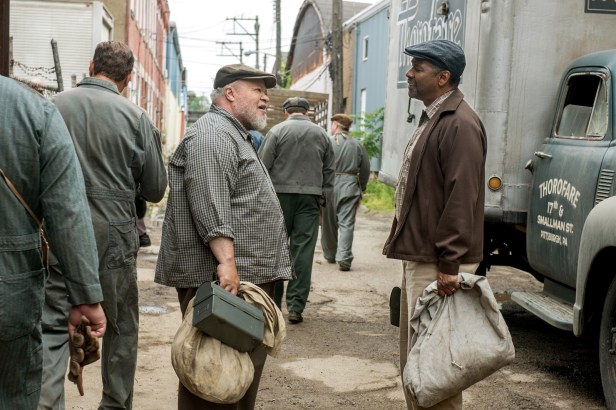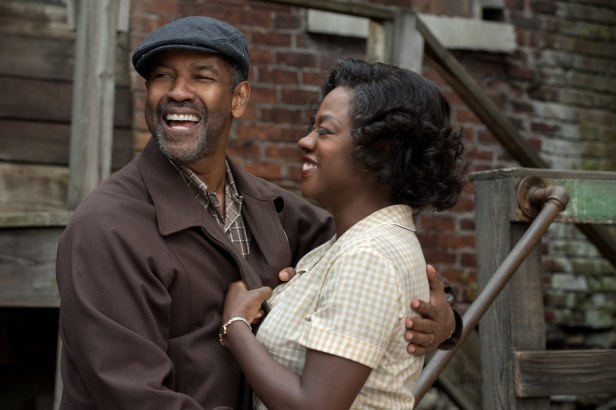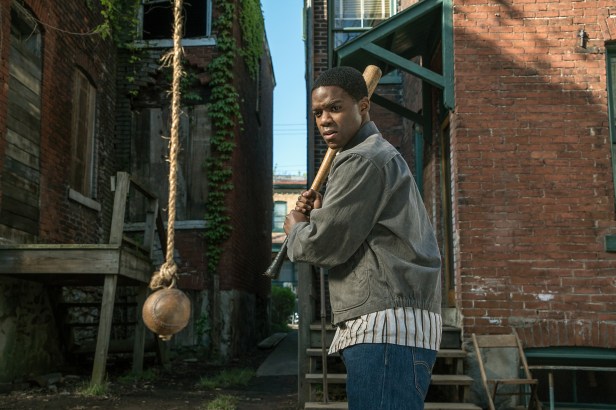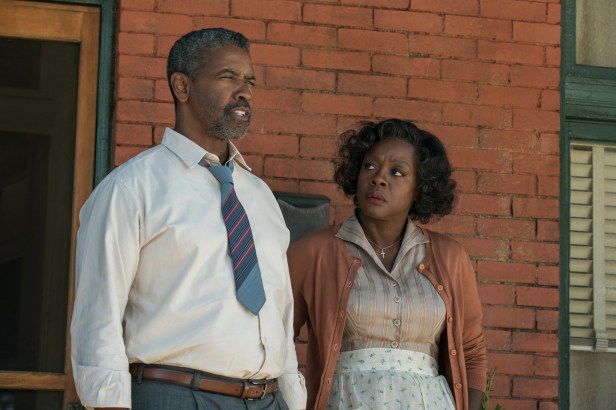Fences (2016)
If you’re unaware of it’s origins, you may find yourself a little puzzled while watching Fences, chiefly as to the reasons behind star and filmmaker Denzel Washington’s decision to stage the majority of his 139-minute picture inside of a worn but somewhat maintained garden. The answer is quite simple. Driven entirely by dialogue and basically limited to a single setting, Fences is a faithful adaptation of August Wilson’s 1983 Pulitzer Prize-winning play of the same name, the movie basically working as a substitute for anyone who might have missed the 2010 Broadway production that saw Denzel Washington and Viola Davis work their magic together as a lower-middle-class African-American couple living in Pittsburgh during the 1950s.

In this cinematic reincarnation, Denzel Washington, once again, plays Troy Maxson, a Pennsylvania trash collector who spends most of his free time drinking in his quaint suburban backyard with his grizzled best friend and co-worker Jim Bono (Stephen Henderson). At first glance, it appears as though the easy going Troy has it all, a loving wife of 18-years, Rose (Viola Davis), who’d blessed him with a son, Cory (Jovan Adepo), a sturdy roof over his head, a charming personality and a nifty knack for telling stories, with everyone around him drawn to his rambles like a moth to a flame. This façade, however, begins to show cracks when Troy starts speaking about racial discrimination, expressing bitterness over his failed baseball career and daily dissatisfaction with life in general, this deep-seeded contempt, and a feeling that he deserved more, eventually burning those he holds dearest.
With playwright August Wilson having penned the majority of the film’s screenplay before his passing in 2005, his beloved writing has been left in check, with Denzel Washington (in his third time behind the camera) staying true to the ‘stage-y’ material and its universal themes of masculinity, morality, duty, hopes and dreams. That said, some of the flick’s metaphors are a bit too blatant and ‘in-your-face,’ particularly that of the fence that Troy and his teenage son Cory spend assembling throughout the picture (which they finish in its last act). For Troy, the titular ‘fence’ is perhaps symbolic of the boundaries of his territory and the things he wants to keep out of his life or a barrier that he tries to place between himself and Death, but for Rose it stands for something else entirely, the fence her way of keeping things ‘inside’ as opposed to ‘out,’ hoping that it’s construction will bring Troy and his son together. In any case, the film is called Fences (plural) and not Fence, suggesting that there can be a number of different allegories for its meaning.

Fences is also chock-full of baseball metaphors, the game basically a representation of the American Dream, with some of Troy’s animosity stemming from his inability to make it as a baseball player due to the racist bigotry of the past, the self-righteous family man claiming that he was better than the slew of emerging professional black players, including the famed Jackie Robinson. It’s also clear that Troy doesn’t want others to wallow in the success he was long-ago denied, mainly Cory, who has an interview lined up with a college football recruiter for a scholarship, which his bullying father instantly smooshes, claiming that their unjust society (with its limited opportunity for people of color) will never change. Furthermore, Troy also uses baseball terminology when attempting to explain some of his more heinous actions, ‘the game’ referenced at various vital junctures throughout the narrative.
Possibly a little too verbose for some, Fences makes for a rather impressive acting show reel. Denzel Washington, Training Day (2001), reprises his Tony Award-winning role of Troy Maxon, a ‘tragic hero’ who rants and raves about his duty to his family (which he believes is solely to provide food and shelter), money (handing his weekly pay check over to his wife) and racial injustice (which he blames for ruining his big plans and aspirations). Commanding the screen, Washington churns out a number of fiercely gripping spiels, painting a picture of a deeply flawed man whose big-headedness and pride ultimately end up betraying those he’s tying to look out for. Viola Davis, The Help (2011), is utterly brilliant as Troy’s devoted, long-suffering wife Rose, the 51-year-old delivering a teary, nose-running monologue that’ll no doubt ensure she gets Oscar gold come awards night, Davis’ raw emotion literally exploding on screen as she dumps 18 years of frustrations out on Troy in one fell swoop.

Support performances are equally is great, with each new player exposing more and more of Troy’s true nature. Russell Hornsby from television’s Grimm (2011) is quite sincere as Troy’s estranged thirtysomething son (from a previous relationship), Lyons, a carefree musician who infrequently visits his dad, sometimes to borrow cash, his father constantly rejecting Lyons’ pursuit to follow his dreams, insisting he find himself a real job instead. Mykelti Williamson, Forrest Gump (1994), is convincing as Troy’s mentally impaired older brother, Gabe, who thinks he’s the archangel Gabriel and constantly walks around with a trumpet in hand. Having sustained a nasty head injury from fighting in World War II, for which he received a $3,000 payment from the government, it’s eventually revealed that Troy used the compensation money to purchase the Maxon estate, this payout existing as a constant shame for Troy, one that he continually feels the need to justify.
Additionally, the film’s beaten and battered backdrop has been gorgeously brought to life by production designer David Gropman, Life of Pi (2012), who portrays the Maxon family home as a structure that’s slowly crumbling away, yet is somehow still standing (just like the flawed folks who reside inside), whilst the cinematography by Charlotte Bruus Christensen, The Girl on the Train (2016), helps alleviate some of the movie’s overwhelming chit-chat and limited physical boundaries.

While certainly thought provoking and undeniably captivating (thanks to a stellar cast), director Denzel Washington does little to adhere to the conventional demands of cinema, refusing to let go of Fences’ stage play roots to embrace the flashiness of the big screen. Be that as it may, it’s safe to assume that Fences won’t be for everyone, it’s a bit of a tough sit through, and is probably way too dialogue heavy for the casual moviegoer, but those after steely performances need look no further. A weighty lesson on the damaging effects of resentment, it certainly looks as though Mr. Washington has hit himself another home run!
3.5 / 5 – Great
Reviewed by Mr. Movie
Fences is released through Paramount Pictures Australia